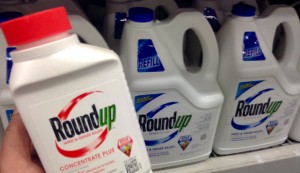21
Oct
Industry Celebrates 25 Years of Undermining Public Health
(Beyond Pesticides, October 21, 2015) Last week, Responsible Industry for a Sound Environment (RISE), an umbrella group representing pesticide manufacturers, celebrated its 25th year anniversary, touting its efforts to roll back critical protections from pesticide use in the U.S. The group emphasizes its role in quashing local government’s right to restrict pesticide use within its jurisdiction after the Supreme Court, in Wisconsin Public Intervenor v. Ralph Mortier (1991), upheld local authority under federal pesticide law.
 RISE, formed out of the National Agricultural Chemicals Association to fight government regulation at the federal, state, and local level, launched with a plan to defeat those opposing pesticide use in favor of sustainable practices, including concerned mothers, progressive businesses, and local and national health and environmental advocates. The platform RISE articulates showcases its plans to influence regulators and consumers to allow the widespread and less restricted use of pesticides.
RISE, formed out of the National Agricultural Chemicals Association to fight government regulation at the federal, state, and local level, launched with a plan to defeat those opposing pesticide use in favor of sustainable practices, including concerned mothers, progressive businesses, and local and national health and environmental advocates. The platform RISE articulates showcases its plans to influence regulators and consumers to allow the widespread and less restricted use of pesticides.
In the 1990’s, RISE joined with another industry group, the American Legislative Exchange Council (ALEC), to seek the adoption in state legislatures across the country pesticide preemption laws, which were adopted in over 40 states. These laws prevent local governments from adopting their own restrictions governing pesticide use on private property. At one point, the organization sought federal legislation to take away the authority of local governments to restrict pesticide use on their own public lands. The measure was rejected by members of the House Agriculture Committee. Though aligned with RISE, conservatives on the committee in the 90’s could not counsel, as a matter of political philosophy, stepping on the rights of states and local governments to adopt standards more restrictive than the federal government. The industry’s focus on preemption in its 25th anniversary reflection signals the threat that it believes democratic decision making by local elected officials or ballot initiatives pose for its future.
A Beyond Pesticides report on state preemption law and its importance in the local democratic process illustrates the benefits of permitting local governments to make decisions that respond to the concerns of their residents, as well as the negative ramifications of state preemption laws. The absence of preemption laws in the seven states that have preserved local authority to restrict pesticides more stringently than the state has been a commanding factor in several pesticide ban victories. Most recently, Montgomery County, Maryland, home to over 1 million people, enacted a law that will forbid toxic pesticides on public and private land within its jurisdiction. This victory follows on the heels of similar acts of local control. Takoma Park, Maryland passed an ordinance in 2013, and the Town of Ogunquit, Maine adopted a similar ordinance by ballot initiative in November, 2014. If you would like to see a similar ordinance passed in your area, click here to let Beyond Pesticides know!
RISE sees the decline of pollinators and issues surrounding clean water as hot topics, with plans to engage in conversations taking place around these issues. The group also has plans to address the “decidedly green attitudes of Millennials” moving forward, though the exact nature of its strategy was not disclosed. However, the group has found it necessary to expand its staff, re-evaluate its brand, and work to fully engage its chemical company members.
RISE is concerned about the build-up of local grassroots advocacy, and plans to become further involved in opposition to sensible pesticide legislation. The group believes getting involved early on in conversations allows them to “build up good will for how specialty products solve problems.” However, in the lead up to a successful ballot initiative that bans pesticides on public and private property in Ogunquit, Maine, RISE unlawfully mailed to town residents opposition literature without identifying itself or registering with the town, as required. RISE’s efforts were also seen earlier this year in its unsuccessful attempts to stop Montgomery County’s historic ordinance to restrict pesticide use on public and private land. Maryland and Maine are two of seven states that do not preempt local jurisdictions from restricting pesticide use on all land within their local political subdivisions.
The outpouring of grassroots support from around the country after the passage of local laws like that in Montgomery County shows that after 25 years of RISE’s efforts to roll back health and environmental protections elected officials and residents believe it is crucial to adopt protections that are thwarted by the chemical industry, the chemical lawn care industry, and government regulators. Beyond Pesticides encourages residents to become aware of national efforts to undermine critical health and environmental laws, and take action in their community to fight for these important public health and environmental protections. Click here to show your support for a pesticide-free community.
All unattributed positions and opinions in this piece are those of Beyond Pesticides.
Source: Pest Control Technology











Roundup Monsanto!
October 23rd, 2015 at 6:43 am